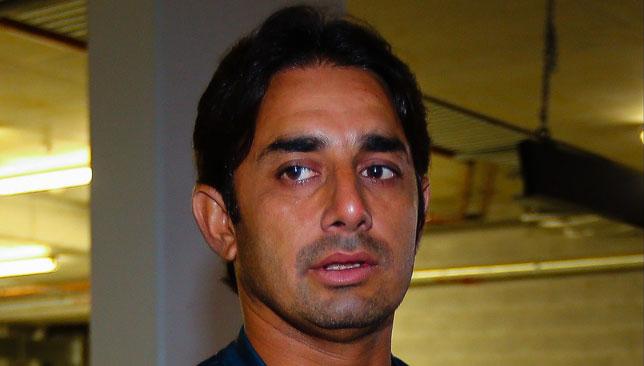
Chucking, or the act of bowling with an illegal action, has plagued cricket for many years and the ICC has often faced criticism for dragging its feet in dealing with the problem firmly.
However, it appears cricket’s world governing body is intent on clearing up the mess before it becomes an embarrassment. The decision to ban Saeed Ajmal from all international matches after an independent analysis found his bowling action was illegal sends out a strong message to all ‘chuckers’ that they will not be spared.
Various experts had forewarned about the menace of chucking ever since Sri Lanka’s Muttiah Muralitharan was permitted to bowl in 1996 with an awkward action owing to a deformity in his elbow.
Former India captain Bishen Singh Bedi had been a vocal critic of the move and firmly believed Muralitharan should not have played a Test match with that bowling action. Muralitharan went on to play 133 Tests and 350 one-dayers and claimed 1,334 wickets to emerge as an all-time great.
By giving that allowance to Murali, the ICC were faced with bowlers who had similar defects. Pakistan’s Shoaib Akhtar (double jointed elbow) and Ajmal (bent elbow following a car accident) fell in that category and the ICC worked around that in 2005 by setting a maximum limit of 15 degrees of flex, which gave elbow room for such bowlers to flourish.
The problem still remained because the success of such bowlers created a huge impact on young impressionable minds who emulated their heroes and ended up with dodgy actions.
Suddenly, international cricket had a surfeit of bowlers, mostly spinners, with odd actions and the ICC were dealing with a much bigger problem than they had envisaged.
Thankfully, they have woken up and since December 2013 umpires have reported six players – Shane Shillingford (West Indies), Sachithra Senanayake (Sri Lanka), Kane Williamson (New Zealand) Prosper Utseya (Zimbabwe), Sohag Gazi (Bangladesh) – including Ajmal. It is the highest number of cases reported in such a short
period in the history of the game.
Let’s face it, there is no charm in bowling a batsman out with an illegal bowling action. We might as well resort to baseball if we allow it to continue. While the ICC’s recent offensive needs to be appreciated, they should expand it further with stricter measures in youth cricket in all Test-playing nations.
All member boards should join the efforts and Pakistan should take the lead in implementing it because they have the biggest list of bowlers – Shabbir Ahmed, Shoaib Akhtar, Mohammad Hafeez, Shoaib Malik, Riaz Afridi, Shahid Afridi and Ajmal – who have been reported with suspect actions.
Other Test-playing nations have a duty to ensure the nuisance is nipped in the bud by asking umpires in youth cricket to be ruthless with bowlers with dodgy actions so that they do not carry the bad habits into the international arena.
Pakistan, though, have a bigger problem at hand in their build-up to the World Cup.
Following their dismal run during the Sri Lanka series, their hopes of bouncing back with a good display against Australia and New Zealand in the upcoming series in the UAE has been dealt a huge blow with Ajmal’s ban.
The off-spinner has been effective on UAE pitches and his absence means Pakistan’s road to the World Cup has just got tougher.